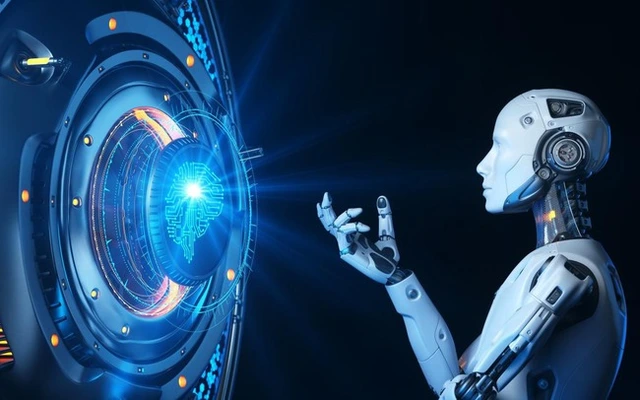According to Kristalina Georgieva, the Managing Director of the International Monetary Fund (IMF), up to 40% of jobs may be affected by artificial intelligence (AI), especially in developed countries.
10 Companies “Hungry for Talent” in 2024: Allowing employees to work online, even ‘permanently remote,’ still pays up to 1.6 billion VND/year AI Generates Job Loss for 5% of Employees in 2024 Using AI Chatbot to Predict Lottery Numbers Artificial Intelligence (AI) is playing an increasingly significant role in all economic sectors. However, not every country is equally positioned to seize this opportunity, leading to potential risks.
According to Kristalina Georgieva, the Managing Director of the IMF, nearly 40% of jobs worldwide will be impacted by artificial intelligence.
IMF Director warns, “We are at the peak of a technological revolution that can drive global growth and increase income worldwide. But it can also make many jobs disappear and exacerbate inequality.”
One unique factor making AI distinctive is its ability to impact jobs that require essential skills.

Director Kristalina Georgieva believes that advanced economies must face greater risks caused by AI, but they also have more opportunities to leverage the benefits of artificial intelligence.
According to the IMF report, AI initially has less impact on emerging markets and developing economies, with lower potential benefits for these entities. This could increase the digital gap and income inequality between countries. According to the report, older workers are more likely to be negatively affected by the changes AI brings.
Therefore, up to 60% of jobs may be affected by artificial intelligence in economies of developing countries.
Half of the industries in the economic sector will benefit from increased work productivity, and for the other half, AI will replace humans in performing crucial tasks.
Development comes with risks, increasing the likelihood of job reduction and pushing down wages. Notably, certain industries will disappear.
The IMF Director estimates that 40% of jobs will be affected by the emergence of AI in emerging economies and 26% in less developed countries. The revolution caused by these technologies is being unevenly distributed.
Many countries lacking infrastructure or skilled labor forces to harness the benefits of AI will increase the risk that this technology will ultimately lead to inequality between nations.
Kristalina Georgieva warns that, in most scenarios, AI will exacerbate overall inequality. It is crucial for countries to establish comprehensive social safety nets and provide retraining programs for workers.
In less developed countries, AI will pose less of a threat to jobs; however, it will help increase productivity in developed countries. This brings economic wealth opportunities for these nations compared to the rest of the world.


Related post
5 Tips to Style Hoodies on Cold Winter Days
As winter settles in, many of us find ourselves reaching for cozy essentials that provide warmth and comfort. One such wardrobe staple is the hoodie.
The Truth Behind the Rumor ‘Santa Claus Is Ugly’ That Surprises Many
As the holiday season approaches, the character of Santa Claus emerges in various forms, his iconic red suit and white beard eliciting warmth and joy
Guide to Creating a Heavy Metal Sound in the Style of Tony Iommi
Heavy metal is a genre rich with history and technical prowess, and few guitarists have influenced its sound as profoundly as Tony Iommi, the legendary
Breaking Down the Key Tactical Edgeas in the Oakland Raiders Lineup
Breaking Down the Key Tactical Edges in the Oakland Raiders’ Lineup reveals not just a football team but a storied franchise with an indomitable spirit.
The Most Heartwarming Moments of Spider Man On Screen
The world of Spider-Man is not just filled with thrilling battles and breathtaking stunts; it’s a tapestry woven with moments of profound empathy, love, and